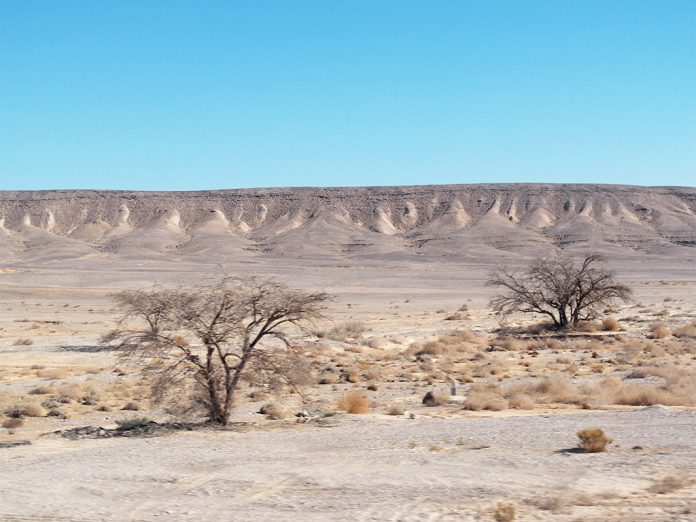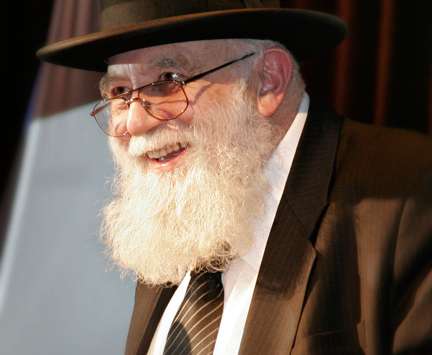Aish Hatorah, or Aish, as it eventually changed its name to be in order to be more hip with the youths, is an institute and movement with an overt agenda of getting Jews to be more religious than they currently are. Their tactics often result in accusations of Aish being a cult, and in this article, I’ll attempt to address these claims in detail.
Generally, Jews don’t believe in proselytizing. Orthodox Jews actually make it very difficult for non-Jews to convert to Judaism even if the person wants to. But if the person is already Jewish, there is a huge mission of bringing someone “back to the faith” and getting them to adopt more Jewish practices, which is typically a key to measuring someone’s Jewishness.
There are a few core obligations that Orthodox Judaism gets particularly excited about. At the top of the list is marrying a Jew, since this is seen as a key to “Jewish continuity.” Below that God-tier expectation, you’ll find the “Big Three” practices: keeping Shabbat, observing Kosher dietary laws, and family purity. This last one means a couple abstaining from all touch and sex for two weeks out of every month when a woman menstruates – and then her needing to immerse in a ritual bath to become “pure.”
While the average Orthodox Jew would love nothing more than to see a secular or reform Jew become more religious, they’d usually limit themselves to an occasional dinner or spirited debate. A few organizations though, have committed themselves to proactively trying to get Jews to be more religious, through a variety of well-honed tactics. The most famous and successful of these are Chabad and Aish Hatorah.
Aish was founded in the 70s by Noach Weinberg, a charismatic and passionate leader who was obsessed with comparing the “spiritual devastation” that was the trend of American Jewry becoming more secular, with the Holocaust.
He would continuously conflate the two, claiming that the current “spiritual holocaust” was worse because it was destroying people’s souls, whereas Hitler had only killed Jews’ bodies.
With this hardline vision and an obsession with “leadership,” he was able to convince generations of secular Jews to not only become religious but to then turn around and recruit others to the cause.
These Ba’al Teshuva ‘returnees to the faith,’ as they were known, lived in parallel to regular Orthodox Jews. They often had less Jewish education, since they had grown up secular, and they never quite learned to fit in with their general Orthodox surroundings, preferring to devote themselves fully to their “mission.”
The Strategy
Aish developed a strategic methodology over the years, to convert the maximum number of Jewish souls to “appreciate the beauty and wisdom of their heritage.”
They recognized early on that presenting many of the ugly, outdated, conservative truths about Judaism’s approach to women and gay rights, personal expression, and strict lifestyle requirements, would not appeal to the average secular person.
Instead, they whitewashed many of these issues, developing apologetic arguments for when the topics were raised, and focusing instead on presenting Judaism as a key to personal growth and fulfillment. (It’s fascinating to note that this is the exact approach taken by the New York-based cult NXIVM, popularized by the HBO documentary ‘The Vow‘, which showcases a lot of parallel terminology and practices which were very common at Aish ).
Classes were developed to both “prove” that Judaism was true, and to teach ways in which people could find “Pleasure”, maximize their potential, and appreciate the “unique Jewish contribution to civilization.”
Aish recognized that college years were a pivotal time for young adults who are still finding themselves, and they focused on reaching students at that age by sending Rabbis to college campuses to recruit. (This strategy is equally popular amongst other dogmatic religious groups, such as Christian and Muslim ones)
A key tactic employed was bringing students on all-expense paid trips to Israel, where they would be treated to endless positive attention and peak experiences while touring the country on weeks-long adventures.
Along the way, they’d be given classes on Jewish topics and exposed to seemingly down-to-earth and relatable religious people who would engage them in philosophical and emotional debate. The goal was to get them to stay in Israel, and having these conversations and experiences while they were away from their natural home environment was a key part of the strategy.
Specific programs were created at Aish Hatorah geared towards people’s current interest and commitment levels. The Discovery Seminar was a one-day program full of proofs of God’s existence. Essentials was a cycle of beginner-friendly classes that further elaborated on these proofs, strategies for living a better life, and the uniqueness of the Jewish experience.
Once someone committed to staying, they’d be eased into Intermediate I and II, then eventually onboarded to the regular ‘Yeshivat Aish Hatorah’ program. At each stage, they’d be exposed to more of Judaism’s darker or less appealing sides and encouraged to observe more strict Jewish practices. (Compare this to the way Scientology slowly exposes people to the weirder stuff only once they are deeply entrenched)
Someone in Essentials might be hitting on girls in the local square and hitting up the bars every evening. By the time they were in Intermediate II, they were being encouraged to dress in black and white, break up with their non-Jewish girlfriend if they had one, and spend endless hours in the study hall.
Within a few years, armed with a minimal amount of Jewish knowledge and a half-assed, self-defined Rabbinical ordination, they’d be sent off to a “branch” to recruit the next generation of college students. Rinse and repeat.
So, is Aish a cult?
Let’s begin by defining the criteria for a cult. There are different definitions for what constitutes a cult, although many share similarities and overlaps.
Former cult member Steve Hassan wrote a book on combating cults, where he defines four criteria under his “BITE Model”, where cults seek to control the Behavior, Information, Thinking, and Emotions of their members.
Under this model, a lot of Orthodox Judaism would already fit into this definition of a cult. Aish took things a step further, with a charismatic leader who was intimately involved in “inspiring” his “leaders” to action through extremist hyperbole, on one hand conveying the “opportunity” and “merit” of their role, while also employing guilt and fear to motivate people.
Here’s how the BITE Model often expresses itself in Orthodox Judaism in general, and in Aish in particular, to help us assess if Aish is a cult.
Behavior
Orthodox Judaism strictly controls the way a person behaves and goes about their day. There are endless laws to follow, things you can and cannot do. Men must pray three times a day and are supposed to spend every spare moment studying Torah. Women are taught to act and dress modestly and that their role is to build a “Jewish home” by having babies, cooking and cleaning, and supporting their husbands.
People must seek guidance from higher up Rabbis for everyday questions regarding their lives, from what food is kosher, to submitting their wife’s underwear for review, to what schools to send their kids to.
Cults function as their own subcultures with their own ritual behaviors and ways of speaking. In Orthodox Judaism, language is peppered with Yiddish, and code words are used to describe certain things, often in a way that leaves outsiders oblivious to covert agendas. For example, BT was short for Ba’al Teshuvas, returnees to the faith, while FFBs were those who were Frum From Birth, born religious.
At Aish, people were methodically encouraged to adopt ever-increasing amounts of Orthodox behaviors and to turn to their Rabbis for guidance in more and more aspects of their lives. It was easy to identify how long someone had been religious by the way they dressed in the study hall (had they finally cut their long hair?), and the types of questions they were asking the Rabbis (Rabbi, what should I do if accidentally tied my shoes in the wrong order?).
Information
In Orthodox Judaism, there is an overt agenda of shielding oneself from “Secular Influences.” All secular content is strictly avoided or censured, from books to movies to newspapers. The internet is perceived as an extreme threat because of the ready access to information that it provides. Specially filtered devices are the norm, and custom textbooks, news, and media solutions are created as alternatives.
Aish took a more insidious approach to this tactic. They presented as well-educated and open-minded, willing to engage in any form of debate on any topic. In reality, the discussions were always happening on their own terms – with a student thousands of miles from family or others they could consult with.
Answers to common questions were carefully scripted and addressed. If someone proved to be particularly stubborn in a class or presentation, they were often sidelined and asked to “discuss their questions in private” so as not to “disrupt the flow of the class.” This way, dissenting opinions were quieted, while general social proof principles were used to show just how many smart people had already agreed with what was being taught.
People were only exposed to incriminating information once they were seen to be sufficiently “insiders” and deemed ready. If a law seemed weird or unexplainable, it was often explained that its reasoning is Kabbalistic and that we “aren’t on the level to understand it”, thus making it one’s own shortcoming.
Thought
Orthodox Judaism gravitates toward black-and-white world views (down to the clothes they wear), an extreme “us versus them” that manifests in both Jews vs. Non-Jews, as well as Religious vs. Secular Jew thinking. There is a single word that is used to convey this, “Mishelanu”, one of us. (This is also the title of the excellent documentary about ex-religious Jews)
Certain thoughts are considered impure or improper, such as thoughts of heresy or sexual fantasy, and techniques are taught to stop these thoughts by shifting to Jewish study or prayer (one law states that one can even repeat religious texts in the bathroom, where they are normally banned if it’s necessary to prevent “bad thoughts”)
At Aish, many intellectual criticisms were actively denied, rationalized, or justified in a systematic way. Ultimately, the goal was to get people to “buy in” to the Orthodox worldview – starting with the fact that God existed, He had chosen the Jews for a special mission, and had given them the Torah through public revelation.
Suggestions that they may be a cult were proactively criticized and diffused by joking about cults and how they either were or weren’t behaving like one. One joke about brainwashing was that “Sometimes brains get dirty, and they do need washing.” Other times rabbis and senior students would laughingly reassure new recruits that they themselves had also suspected Aish of being a cult when they first got involved in it.
Noach Weinberg himself revived and popularized the “Six Constant Mitzvos”, ideas related to God’s existence that one was encouraged to repeat on a loop, during every waking moment. He would refer to those who did not have the “intellectual honesty” to grapple with his philosophies and make the difficult decision of becoming religious, as “Zombies”.
Emotion
Orthodox Judaism seeks to strictly control what and how people feel things. Fear and guilt are at the root of many motivations, Charedim or “the fearful ones” is the common name for Ultra-Orthodox Jews in Israel. Specific holidays necessitate feeling specific emotions – happiness on Purim, sadness on Tisha B’av, Awe on Rosh Hashanah.
Positioned as “spiritually responsible” for the entire world, any global catastrophe, and all the more so one that befalls Jews is pointed to by leaders as evidence that members are not fulfilling their obligations to each other and to God.
Aish Hatorah’s mission was impossibly grand. By saving the Jewish people, they in turn would be a “light unto the nation”, ushering a utopia for all of reality and heralding the arrival of the Messiah, who would only come if enough Jews became properly observant of Jewish law.
At Aish, people were promised a gateway to happiness and higher levels of meaning if they adopted a more spiritual Jewish life. They were extolled the unique privilege and opportunity to “save other Jews” and made to feel guilty if they “didn’t live up to their potential” and assume a leadership position. People who just left and got normal jobs were seen as sellouts, seeking material comforts and simple lives instead of making the harder, better choice.
Noach Weinberg would give fiery speeches about the spiritual holocaust that was unfolding throughout the world. On Tisha B’av, when people typically mourn the destruction of the Jewish temple 2,000 years ago, students were encouraged to get up and speak about the “spiritual destruction” of their home countries, in the form of intermarriage or lack of Jewish identity.
Ignorance was seen and regularly compared to, Hitler’s destruction of European Jewry in the Holocaust. Aish’s leaders were compared to those who had helped people escape the Holocaust, simultaneously praising each soul saved as unique, while also placing it against the backdrop of all those who hadn’t been saved yet.
Many within Aish Hatorah’s leadership operated with a constant state of guilt or inadequacy, working very long hours often with little or no pay during the many times of financial hardship when the organization couldn’t raise enough funds, yet feeling like they had not done enough.
My Assessment: Aish is a Cult
Judaism does not believe in evangelizing outsiders. But based on all the above, I believe it is fair to describe Aish as an evangelical Jewish cult, devoted to converting Jews to a far more religious and dogmatic worldview. This was done under the influence of a charismatic and emotionally manipulative leader under the guise of promoting education and personal actualization.
Aish builds upon the already culty Orthodox Judaism and adds an extra layer of intense leadership, hard-line cause, and devoted followers who sacrificed their own personal lives and needs for the sake of their shared mission.
As an aside, it’s worth noting that Hassan defines four different groups of cults, with the most recognizable one being Religious cults. Aish fits well into a secondary category of self-help/educational cults as well, as this is a key part of their ideology, strategy, and narrative (the other two types are Political cults and Commercial cults).
Like many cults, Aish has done a great job preserving its reputation. They got testimonials from Bill Clinton, held lavish dinners and raised funds from secular Jewish donors, and built large, beautiful buildings in prime real estate locations. In many ways, their goals aligned with those of the Israeli government, which is also keen on driving immigration to Israel and “increased Jewish pride,” and they received support in the form of funding and real estate grants.
Their main center is located in one of the most coveted spots to a traditional Jew, right across from the Western Wall in Jerusalem, where they can easily target the millions of people who visit the historic landmark each year.
My Aish Hatorah Experience
I write much of this from my own personal experience.
Both my parents were deeply involved in Aish for over twenty years, my father then moved on and started his own educational institution with similar philosophical goals and agendas.
My father’s story began when his twin brother accidentally walked into the Aish Hatorah building in Jerusalem when he was 17. My father decided (stupidly) to go save him, believing (correctly) that he’d joined a cult – and after having bought my grandparents a book about the Moonies. After “preparing” by studying for a minor in undergraduate philosophy, he did what no untrained professional is ever supposed to do, and ventured to Israel to debate seasoned professionals twice his age. After a month of arguing, he lost the battle.
Aish was run by three pairs of Canadian brothers who had influential positions within the organization – the brothers Shore, Schwartz, and Coopersmith. My father was the Chief Operating Officer of Aish Hatorah, traveling for many months out of the year to manage the dozens of branches Aish had around the world (which all fed back to the Aish Hatorah Yeshiva in Jerusalem).
He ascribed to the Orthodox belief in mass procreation and had nine children, but was largely absent for over a decade as he devoted himself to “the mission.” There were many years when Aish couldn’t raise enough funds to pay its staff, but my father continued to work for free for months at a time.
My siblings and I were all sent to extremely religious Orthodox schools, at the advice of my parent’s rabbis. Even when these proved to be terrible for us, being systemically abusive both physically and emotionally, my parents kept us “in the system” since this was seen as the only environment worth being in.
Every weekend, we’d host a multitude of guests; secular college students to whom we’d show “the beauty of Shabbat” and a “warm Jewish home.” They’d be wined and dined, given attention and warm hospitality, and convinced that we were living a happier and more fulfilled life.
In reality, my mother struggled with a myriad of mental health issues, while my father was emotionally distant, judgemental, and prone to bouts of anger; their relationship was tumultuous and unstable. My siblings and I fought continuously, struggled in school, and never fit in. My mother had no interest in cooking or hosting anyone who didn’t perfectly fit the evangelical agenda – non-Jews or already-religious Jews were not part of the plan.
You would have seen none of that if you had been our guest for a meal. Our tactics worked well, and we influenced dozens of people to become religious. Some went on to become successful rabbis and “leaders” in their own right, others, I happen to know, are miserable now, straddled with children and failing relationships, plagued by a system of religion they no longer believe in.
I grew up in this environment, surrounded by the language and purpose of Aish at home and on weekends, and exposed to conventional Orthodox ideology while at school. I bought in, and I planned on being part of the next generation of Jewish leaders.
In my early teens, I would spend every waking moment studying texts, literally reading from them as I walked to and from synagogue to my house. I taught myself the Six Constant Mitzvos and repeated them in my mind ad-nauseum, from the moment I woke up until the moment I went to sleep.
In addition to both my parents, three of my uncles also became religious through Aish and worked in various positions within the organization. Even my grandmother, who remained secular, was recruited to call other worried parents and convince them that their child was not, in fact, in a cult. (She now regrets doing this)
This was a classic example of the proactive damage control Aish undertook to preserve their reputation and keep families from intervening during the critical time when their children were being influenced.
After struggling in conventional Orthodox high schools for several years, I attended Aish for a year, was married at the age of 22 in an arranged marriage to the daughter of another Aish Rabbi, and became an ordained Rabbi myself.
I have since left religion (you can read more about my personal story in my biography) and am vehemently critical of organized religion in general and Orthodox Judaism and Aish in particular. I tried to keep this article as neutral as possible, drawing upon my extensive knowledge of Jewish texts and philosophy, as well as both Aish and Orthodox Jewish culture which I experienced firsthand.
Is Aish a cult? Ultimately, it’s up to you to decide. But keep them at arm’s length while you arrive at your conclusions. Asking a cult if they are a cult is not a very trustworthy way to arrive at an honest answer.
Supplemental reading
Since publishing this post, I’ve had a few other pieces shared with me that also examined Aish decades ago. I’m linking to them here (jump to page 11 for the cult parts) and here for your convenience.

















